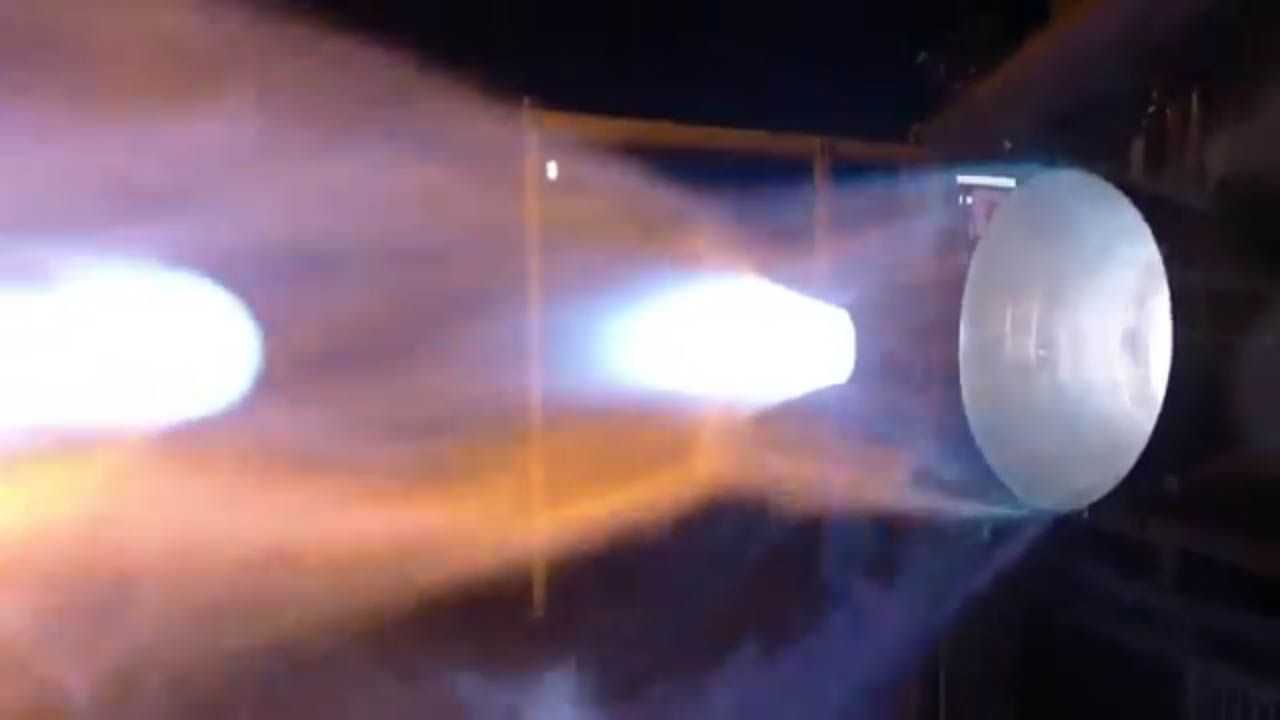
One of Blue Origin's powerful BE-4 rocket engines suffered a dramatic failure during testing last month, according to CNBC.
The BE-4 — the engine that will power Blue Origin's New Glenn rocket and United Launch Alliance's (ULA) Vulcan Centaur — exploded about 10 seconds into the test, which Blue Origin conducted at its West Texas facility on June 30, CNBC's Michael Sheetz reported on Tuesday (July 11).
People familiar with the anomaly "described having seen video of a dramatic explosion that destroyed the engine and heavily damaged the test stand infrastructure," Sheetz wrote.
Related: Facts about Blue Origin, Jeff Bezos' spaceflight company
The engine was being prepped to fly on the second launch of Vulcan Centaur, Sheetz wrote. Blue Origin confirmed that detail, as well as the testing incident, in a statement sent to CNBC.
"No personnel were injured, and we are currently assessing root cause," Blue Origin representatives said, according to Sheetz. Investigators have already determined the proximate cause of the anomaly "and are working on remedial actions," the statement added.
Blue Origin added that it immediately made ULA aware of the incident. And the latter company — a joint venture of Boeing and Lockheed Martin — doesn't seem to view it as a major problem at the moment.
The BE-4 has already been qualified for flight, meaning its overall design is sound, ULA President and CEO Tory Bruno stressed via Twitter on Tuesday. The engine that failed on June 30 was undergoing an "acceptance test" (APT), which looks for issues with individual units before flight. (There are other steps along this path as well, including "hot fire" tests of fully integrated engines on the launch pad.)
"ATP failures are not uncommon. That's why we do them on every single serial number that comes off the line," Bruno said in another Tuesday tweet.
Many parts on a rocket, individual ATP failures not uncommon (why we do it). We analyze each for potential crossover, as a discipline. Many other BE4s have passed ATP & gone on to hot fire. This one had failed an earlier ATP attempt & was reworked. Keep your powder dry for now.July 11, 2023
ULA has been dealing with issues of its own on Vulcan Centaur. The heavy lifter was supposed to debut in early May, on a mission that will send the private Peregrine lander toward the moon. But that target date was pushed back after a Centaur upper stage exploded during testing at NASA's Marshall Space Flight Center on March 29.
It's unclear when the new rocket will get off the ground. Late last month, the company said it would destack the first Vulcan Centaur and send the upper stage back to its factory in Alabama for modifications.
We should learn more soon: Bruno is scheduled to talk to reporters about Vulcan Centaur on Thursday (July 13).
New Glenn, the other big rocket that the BE-4 will power, also has yet to fly. Its debut was originally targeted for 2020, but delays in the BE-4's development have pushed that timeline to the right repeatedly. Blue Origin has recently declined to provide a new target date, as Sheetz noted.







